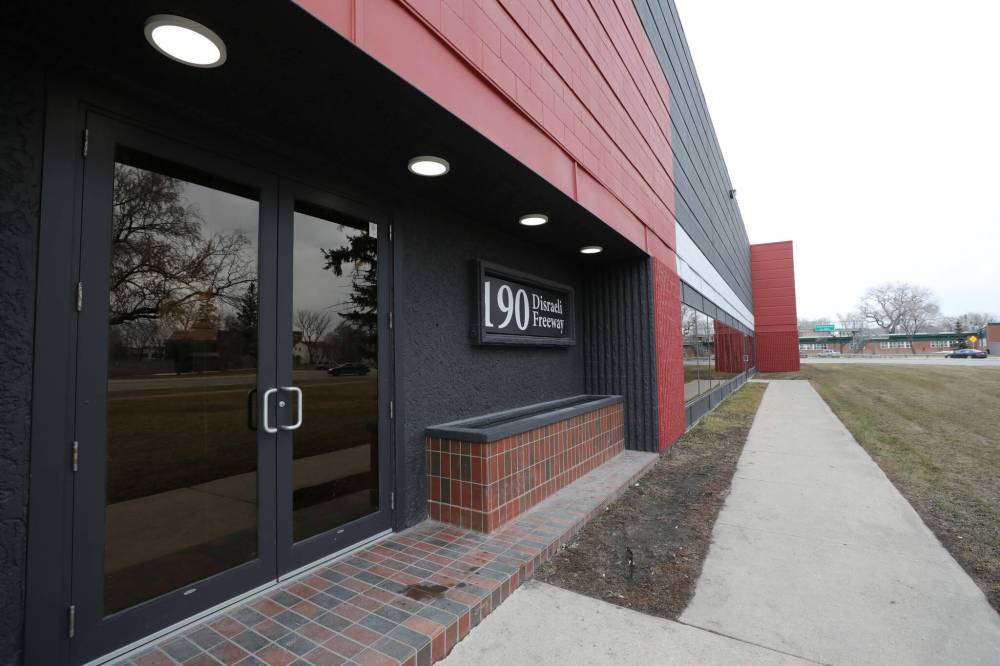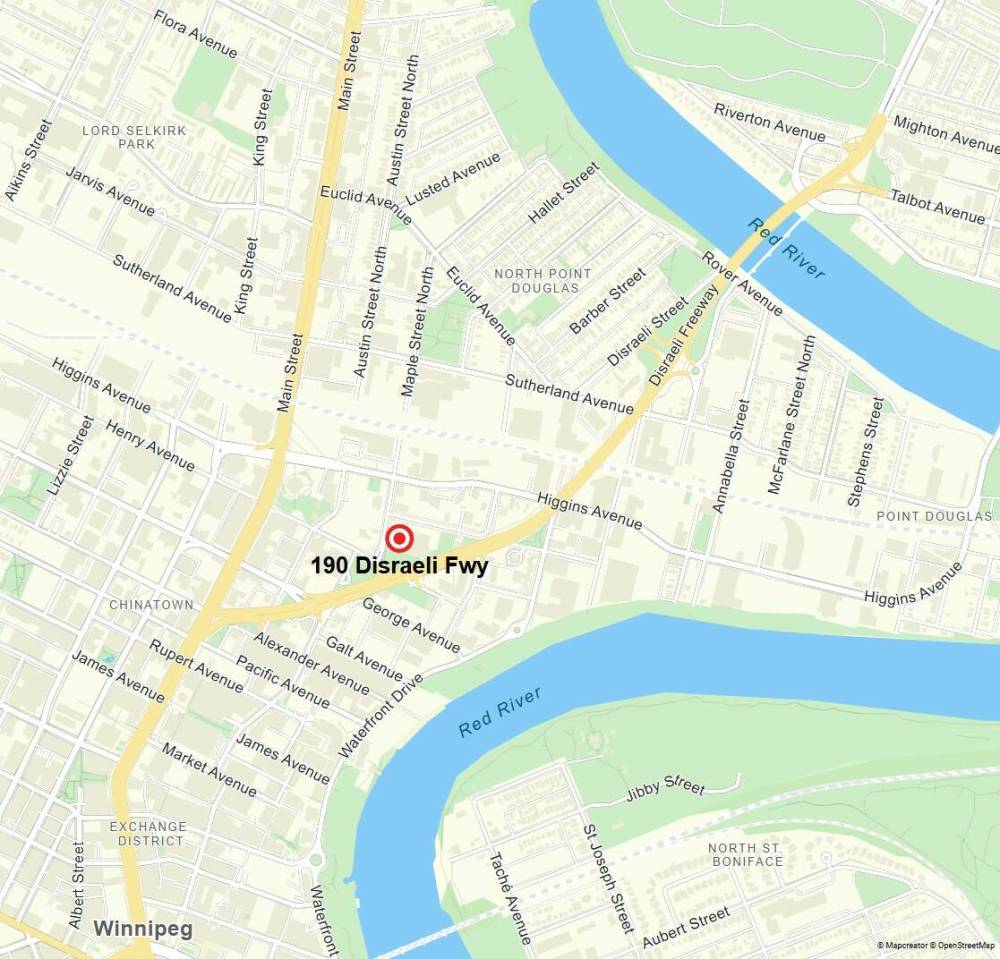NDP eyes Point Douglas location for detox centre
Same location rejected for supervised consumption site after neighbourhood opposition
Advertisement
Read this article for free:
or
Already have an account? Log in here »
To continue reading, please subscribe:
Monthly Digital Subscription
$1 per week for 24 weeks*
- Enjoy unlimited reading on winnipegfreepress.com
- Read the E-Edition, our digital replica newspaper
- Access News Break, our award-winning app
- Play interactive puzzles
*Billed as $4.00 plus GST every four weeks. After 24 weeks, price increases to the regular rate of $19.00 plus GST every four weeks. Offer available to new and qualified returning subscribers only. Cancel any time.
Monthly Digital Subscription
$4.75/week*
- Enjoy unlimited reading on winnipegfreepress.com
- Read the E-Edition, our digital replica newspaper
- Access News Break, our award-winning app
- Play interactive puzzles
*Billed as $19 plus GST every four weeks. Cancel any time.
To continue reading, please subscribe:
Add Free Press access to your Brandon Sun subscription for only an additional
$1 for the first 4 weeks*
*Your next subscription payment will increase by $1.00 and you will be charged $16.99 plus GST for four weeks. After four weeks, your payment will increase to $23.99 plus GST every four weeks.
Read unlimited articles for free today:
or
Already have an account? Log in here »
The province is considering a Point Douglas building as the location of a proposed 72-hour detox centre for highly intoxicated people, despite scrapping previous plans for a supervised consumption site there after residents complained.
The “protective care centre” could be created at 190 Disraeli Fwy., just blocks away from the current 24-hour detox centre operated by Main Street Project, Premier Wab Kinew said.
“This is about protecting people, but also protecting the community,” Kinew told reporters Thursday afternoon. “We see a very visible impact that meth is having… and so having a facility to keep people there so they are not being a harm to themselves or others is an important response.”

RUTH BONNEVILLE / FREE PRESS FILES
The building at 190 Disraeli Freeway is currently home to N’Dinawemak, an Indigenous-led homeless shelter.
The proposed facility would include 20 spaces where people could detox from drugs. It would provide health-care resources, including prenatal testing and treatments for sexually transmitted infections and other blood-borne infections, Kinew said.
If the plan moves ahead, another 20 spaces could be introduced to the facility in the new year. The NDP chose the site, in part, because it is owned by the province, which will allow it to open quickly, Kinew said.
“This is a live concern,” he said. “Unfortunately, there’s a demand for this service, and the demand is the community wants us to take action to stop the damage and the effects of meth psychosis out on our streets.”
Katherine Bitney, who has called Point Douglas home for a dozen years, said she opposes a detox centre at the location. She cited its proximity to Argyle High School, which is a five-minute walk away.
“I would be extremely angry to learn it was anywhere near a school or a daycare or a playground,” Bitney said. “We already had to struggle with the various powers that be to not put a safe injection site there for the exact same reasons.”
Point Douglas resident David Vrel said that while he opposed a supervised consumption site, he supports the proposed detox centre.
“I’m in favour of that 110 per cent,” said Vrel, a former drug addict and alcoholic who has lived in the neighbourhood for nine years.
“The next step is we need more treatment facilities,” he said. “If you want to quit using drugs, you need help right at that moment. You can’t be told to wait three weeks. You’re not going to come back.”
Construction of the centre is contingent on the passing of Bill 48, the Protective Detention and Care of Intoxicated Persons Act, which was subject to a second reading in the legislative chamber Thursday.
The legislation would allow people with substance-caused psychosis to be detained for 72 hours from the current 24.
“If someone is on meth and they are a risk to themselves or a risk to others, this gives the authority to police, or maybe a community resource officer, to take them somewhere to get supports, to get them off the streets,” Housing, Addictions and Homelessness Minister Bernadette Smith said in the chamber.
“This is what the community has been asking for.”
Smith introduced the bill last week. It passed first reading and garnered support from Winnipeg Police Service Chief Gene Bowers, who said it would reduce the increasing strain on police resources.
Under current regulations, police are required to either “criminalize” those intoxicated by substances other than alcohol or take them to the hospital, where they can face prolonged wait times, Bowers has said.

Kinew raised that point again Thursday.
“When I think about the emergency room in the Health Sciences Centre, when I think about kids walking home from school in some of these neighbourhoods, when I think about seniors who have been targeted in random violence by people who are using meth, to me the justification is so strong to move to open this facility,” he said.
The Progressive Conservatives countered, saying the announcement of the protective care unit at the Disraeli site raises a number of questions and concerns, similar to the scrapped supervised consumption site proposal.
“What’s going to happen with that area?” Opposition Leader Obby Khan said after question period. “More drug dealers may come in that area — maybe gangs may come in there to traffic, sell to the people that are now being released from the protective care units.”
Khan said the government hasn’t explained how the units will be secured, staffed, funded or managed. He said Manitobans need answers, and he hopes they’ll get them when the bill goes to committee where the public can raise concerns and ask questions. Those public hearings could come as early as next week.
Jeff Bereza, Portage la Prairie MLA and Tory health critic, raised concerns over whether the bill would “open the door” to supervised consumption sites across Manitoba.
Fort Garry independent MLA Mark Wasyliw, a criminal defence attorney, called the bill problematic and said it may defy a constitutional right not to be arbitrarily detained beyond 24 hours. He warned it could be abused by police and disproportionately applied to people of colour.
“Seventy-two hours is ridiculous,” Wasyliw said. “This is going to create more harm than it will actually solve.”
Despite the PC reservations, the bill passed second reading with none of the 47 members present on either side of the aisle voting in opposition. Ten MLAs, including Wasyliw, did not participate in the vote.
—with files from Aaron Epp and Carol Sanders
tyler.searle@freepress.mb.ca




